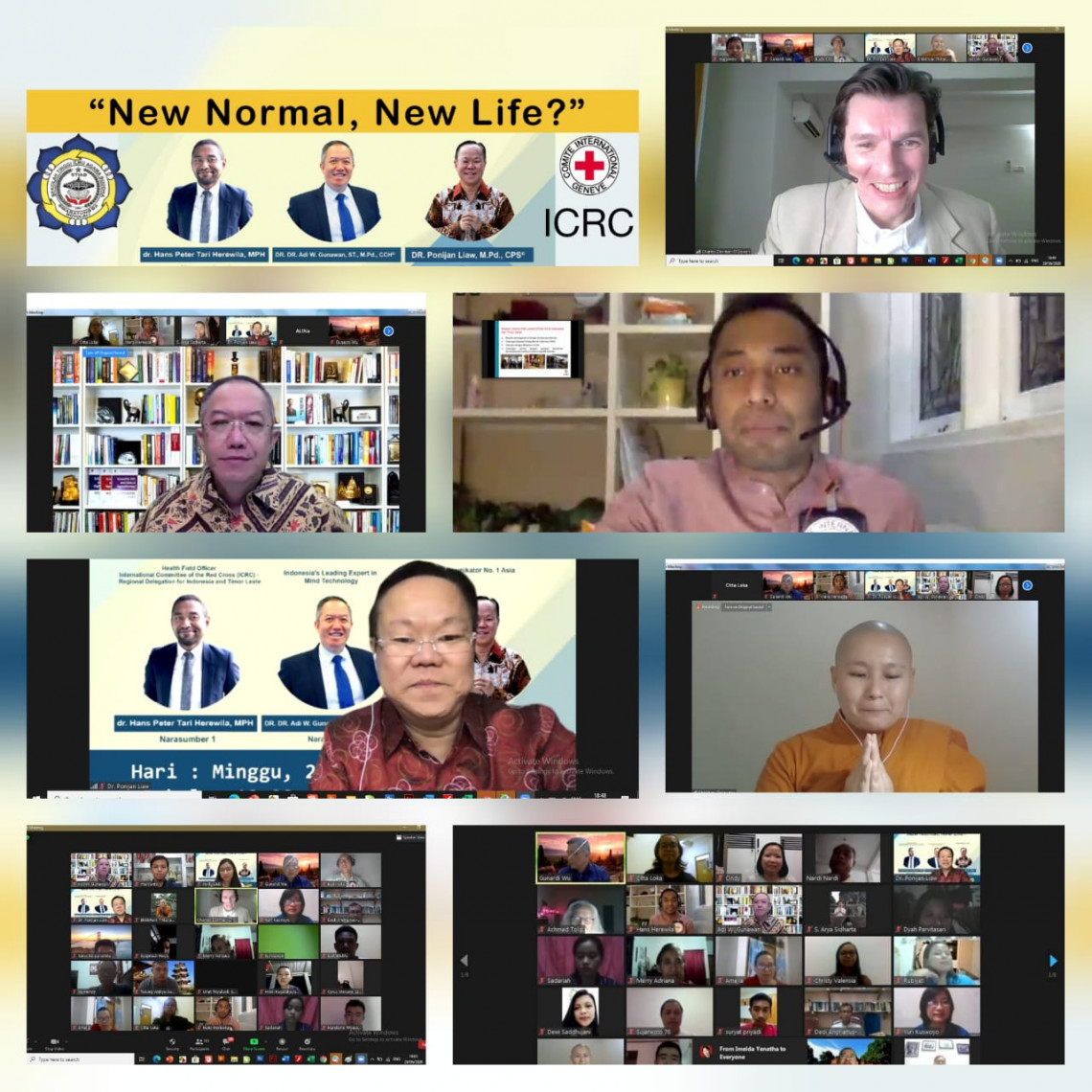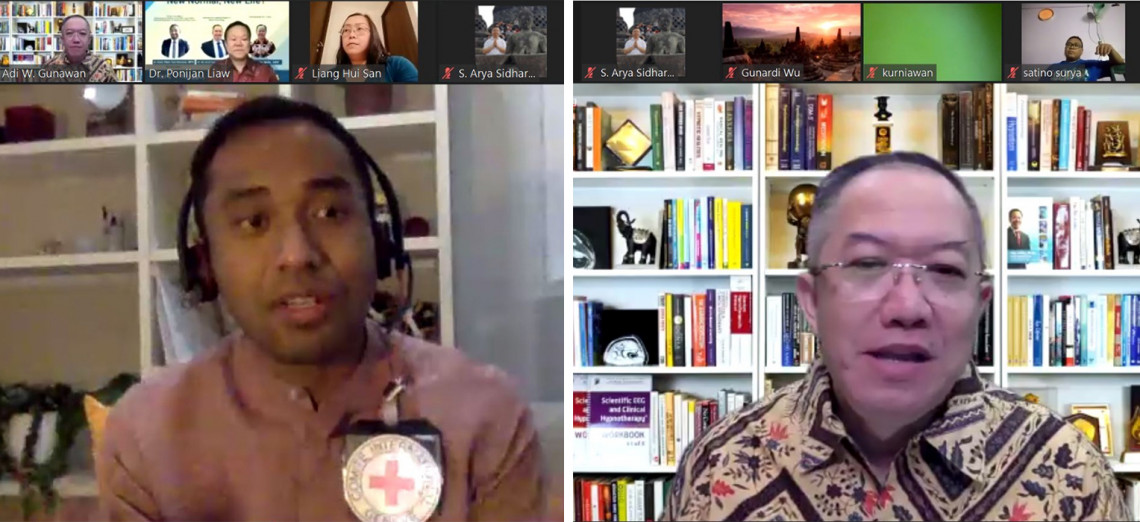As follow up to the collaboration between the ICRC and the Buddhist community in Indonesia in dealing with the COVID-19 pandemic, the ICRC co-organized another webinar with Smaratungga Buddhist College (STIAB) of Boyolali on 28 June 2020.
More than 250 online viewers participated through Zoom and YouTube. In less than 24 hours, more than 1,000 viewers watched the webinar recording on STIAB’s YouTube channel.
Representatives of both institutions formally opened the event. Charles Dorman-O’Gowan, the ICRC Asia regional coordinator for Global Affairs, emphasized, “The collaboration between the ICRC and the Buddhist community in Indonesia is not new. Various joined activities have been organized, such as seminars, conferences and webinars, but also humanitarian actions in the field. These demonstrate that we both share a common vision and mission to address humanitarian challenges around us.”
From STIAB’s side, Ven. Ditisampano Budi Utomo PhD, the head of the college, welcomed the webinar, “It gives a new understanding on how we behave and act during the ‘new normal’ in order to create a new spirit to get on with our lives.”
He also highlighted that for the Buddhist community, restrictions and limitations such as PSBB (the government-imposed restrictions during the pandemic) need to be followed with a sense of enjoyment. “The Buddha himself already taught us how we live with restrictions and limitations; how we live to enjoy all processes we face, namely with meditation,” he said.

In confronting the pandemic under the so-called ‘new normal’ situation, STIAB and the ICRC invited Dr Hans Peter Tari Herewila, who dealt with the issue from the public health perspective, and Dr Adi W. Gunawan, who discussed the issue from a mind technology perspective. Dr Ponijan Law, a communication expert from STIAB, was moderating the event enthusiastically.
As part of the Indonesian Government Taskforce of COVID-19, Dr Herewila first introduced the mission, mandate and a brief history of the ICRC in Indonesia, which was already active during the Indonesian Independence War in 1949. He then outlined the measures to adapt to the new normal in four stages: Readiness, stop spreading the infection, mitigation of infection and building resilience.
“Individuals can take an active role in prevention of COVID-19 by having full understanding of the ways to reduce risks of infection, knowing what to do if they are sick, and accessing accurate information from official sources such as www.covid19.go.id from the Taskforce,” said Dr Herewila.
“Adaptation can be relaxed, but not to be terminated, depending on the condition of the pandemic. So it can be tightened up again. As long as the vaccine has not been discovered, we will live in this kind of situation for at least the next eighteen months”, added Dr Herewila.
In line with this presentation, Dr Adi W. Gunawan continued the exploration of what ‘new normal’ means. He referred to it as a call to change and adapt to the new reality.
“Since the outbreak, various new terminologies have been introduced to the public, such as social distancing. This is a foreign concept which many hardly understand. Then physical distancing, new normal and now, adaptation to the new habit. But many simply do not know. So if they don’t know, how can they act upon it?”, explained Dr Gunawan.
Dr Gunawan went on to analyze why people found it hard to change, “People are hard to change because they are afraid to leave their comfort zone. They do not know how to change or if change is needed or their surrounding supports them not to change. To change requires courage and consciousness. People are yet to change because they have not experienced enough pain.”
He added, “To address this, one needs to leave one’s comfort zone. Of course, you will experience fear, discomfort in entering the learning zone, but you will eventually arrive in the growth zone.”
Viewers enthusiastically raised many questions to both speakers. Consequently, the organizers had to extend the webinar for one hour to accommodate the Q&A time. The webinar finished at 10 pm and was followed by a memorial ceremony for the late Ven. Dharmasurya Bhumi Mahathera, a senior monk of the Sangha Agung Indonesia who passed away on 24 June 2020.

